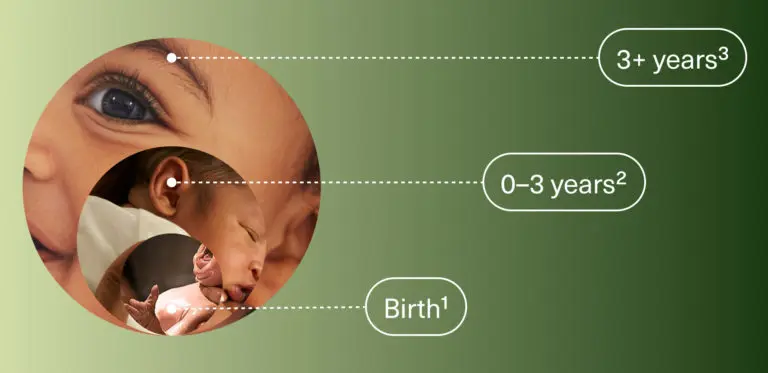
The early years of life are a crucial time for development, laying the foundation for lifelong health. And just as important as physical growth and cognitive development is the development of a healthy gut microbiome. This community of trillions of microorganisms plays a vital role in immune function, digestion, and overall well-being.
The Infant Microbiome: A Journey of Development
The infant microbiome begins its journey in the womb, exposed to maternal bacteria during pregnancy and birth. This initial exposure sets the stage for the microbiome’s colonization and development, influenced by factors such as delivery mode, breastfeeding, and environmental exposures.
During the first few years of life, the infant microbiome undergoes rapid changes as the baby encounters new foods, microorganisms, and environments. By the age of three, the microbiome becomes more stable, resembling that of an adult.

The Importance of a Healthy Microbiome
A healthy infant microbiome is essential for a child’s overall health and development. It helps with:
- Immune System Development: The microbiome plays a crucial role in training the immune system to distinguish between friend and foe, protecting against infections and allergies.
- Digestion and Nutrient Absorption: The microbiome aids in breaking down food, absorbing essential nutrients, and maintaining a healthy gut barrier.
- Overall Well-being: The microbiome is linked to various aspects of health, including brain development, mood, and even the risk of chronic diseases.
How to Support Your Baby’s Microbiome
Parents can play a significant role in shaping their baby’s microbiome and setting the stage for a healthy future. Here are some key steps:
- Vaginal Birth: Vaginal delivery exposes the newborn to a rich diversity of beneficial bacteria from the mother’s vaginal microbiome.
- Breastfeeding: Breast milk contains prebiotics, which nourish the beneficial bacteria in the infant’s gut, promoting a healthy microbiome.
- Skin-to-skin Contact: Skin-to-skin contact between mother and baby during the first few hours of life and beyond transfers beneficial bacteria to the newborn.
- Delayed Introduction of Solid Foods: Exclusive breastfeeding for the first six months, followed by appropriate introduction of solid foods, helps establish a healthy microbiome.
- Minimize Antibiotic Use: Antibiotics, while sometimes necessary, can disrupt the microbiome’s balance. Use them only when truly needed.
Seed: Nurturing Your Baby’s Microbiome
Seed, a leading provider of high-quality probiotics, offers a comprehensive approach to supporting your baby’s microbiome. Their Daily Synbiotic for Infants and Toddlers is specifically formulated with scientifically studied probiotics and prebiotics to promote a healthy gut microbiome from the start.
Seed‘s commitment to research and transparency ensures that parents can trust in the quality and efficacy of their products. With Seed, you can empower your baby’s health and well-being by nurturing their microbiome from the very beginning.

Embark on a Healthy Journey with Seed
Your baby’s microbiome is a precious gift, and Seed is here to help you nurture it with care. By incorporating Seed Synbiotics into your baby’s daily routine, you can provide the foundation for a lifetime of health and well-being.
Remember, a healthy microbiome is not just about digestion; it’s about supporting your baby’s overall development and setting them up for a lifetime of well-being. With Seed, you can make an informed choice for your baby’s health.





